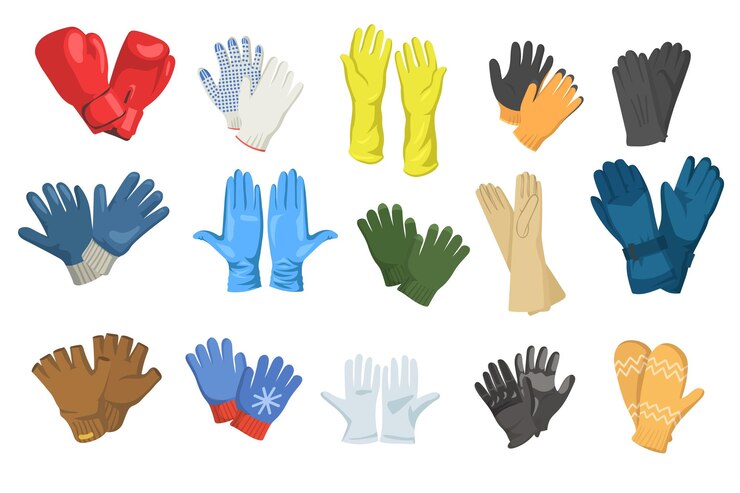
Gloves and hand protection are essential in various settings to ensure the safety and well-being of individuals. Different types of gloves are designed for specific purposes, and choosing the right kind depends on the intended use. Here are some common types of gloves and their applications:
Disposable Gloves:
- Latex Gloves: These gloves are commonly used in medical settings but can cause allergic reactions in some individuals.
- Nitrile Gloves: An alternative to latex gloves, nitrile gloves are suitable for those with latex allergies. They are commonly used in medical and laboratory settings.
- Vinyl Gloves: These gloves are a cost-effective alternative but may not offer the same level of protection as latex or nitrile gloves. They are often used in food service and cleaning.
Chemical-Resistant Gloves:
- Nitrile Gloves: These gloves provide protection against a wide range of chemicals and are commonly used in laboratories and industries where chemical exposure is a concern.
- Neoprene Gloves: Resistant to acids, bases, and other chemicals, neoprene gloves are suitable for tasks involving chemical handling.
Cut-Resistant Gloves:
- Cut-Resistant Gloves: Designed to protect against cuts and abrasions, these gloves are commonly used in industries such as construction, manufacturing, and food processing.
Heat-Resistant Gloves:
- Leather Gloves: Leather gloves offer heat resistance and are often used in welding and other tasks involving exposure to heat.
Cold-Resistant Gloves:
- Insulated Gloves: These gloves are designed to protect against cold temperatures and are used in industries like agriculture, fishing, and cold storage.
Mechanical Gloves:
- Impact-Resistant Gloves: These gloves are designed to protect hands from impact and vibration and are commonly used in construction and manufacturing.
- Anti-Vibration Gloves: Designed to reduce the effects of vibration from tools and machinery on the hands.
Electrically Insulated Gloves:
- Rubber Insulating Gloves: Used by electricians and workers dealing with electrical systems, these gloves provide protection against electrical shocks.
When selecting gloves, it’s important to consider the specific hazards involved in the task, the required level of dexterity, and any potential allergies or sensitivities of the wearer. Additionally, proper fit and regular inspection of gloves are crucial for ensuring their effectiveness. Always follow the manufacturer’s guidelines and industry standards for glove use and maintenance.









